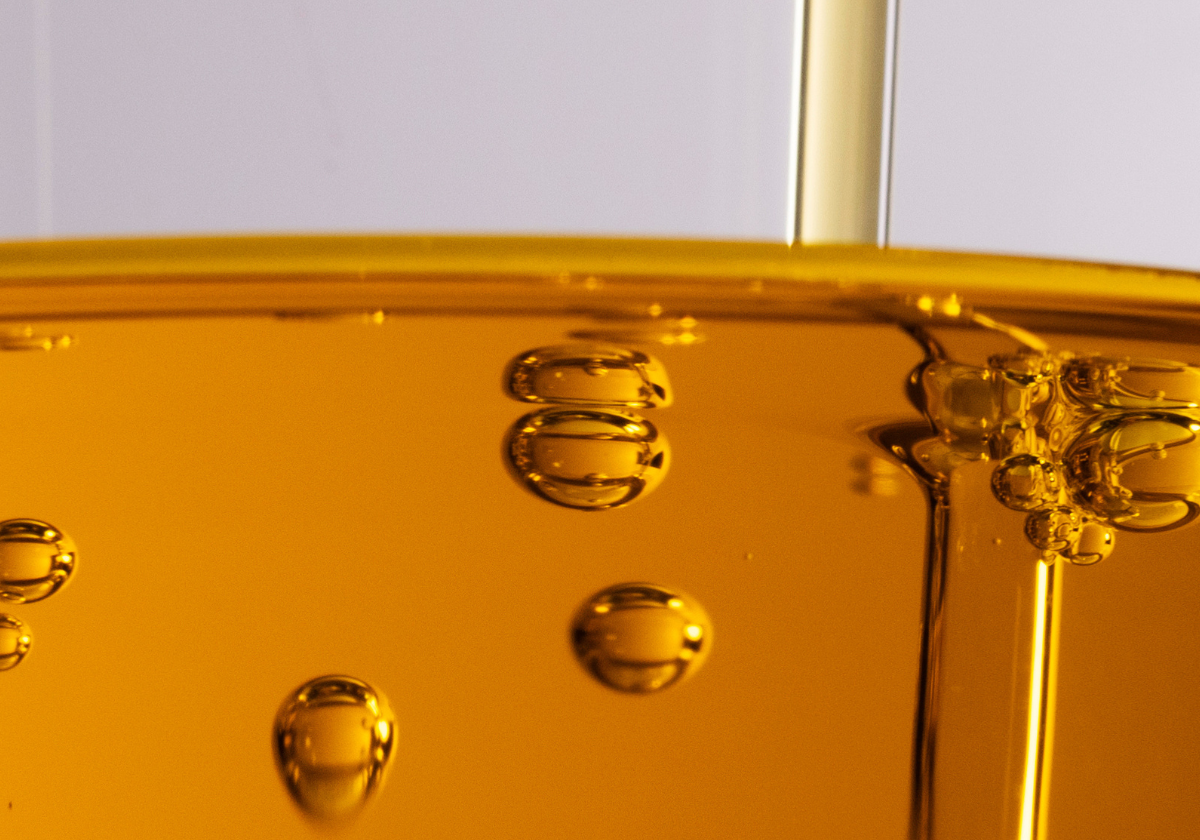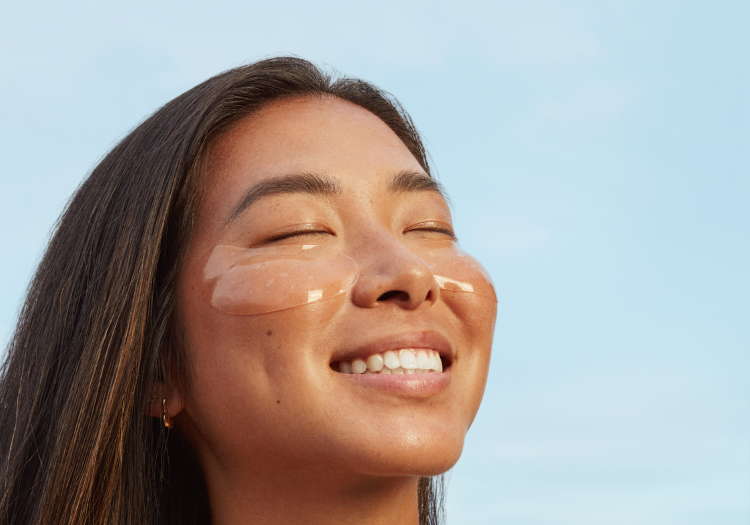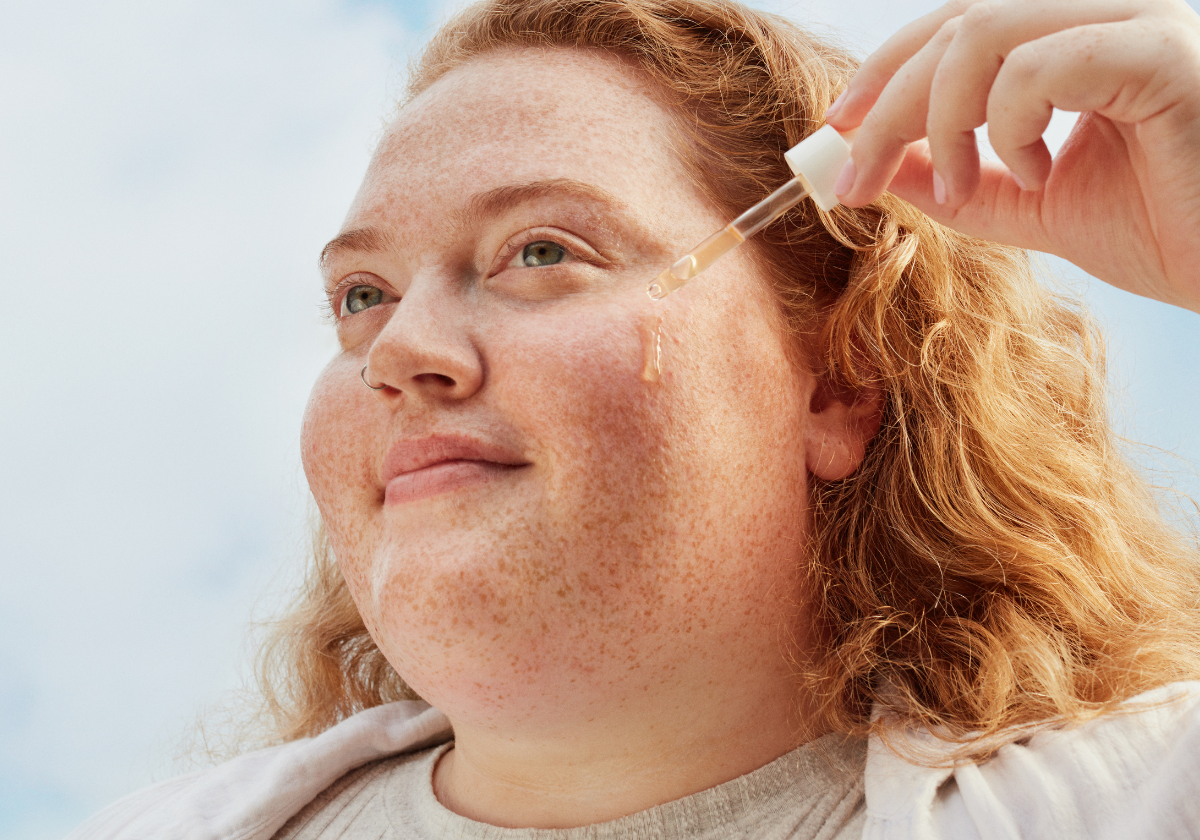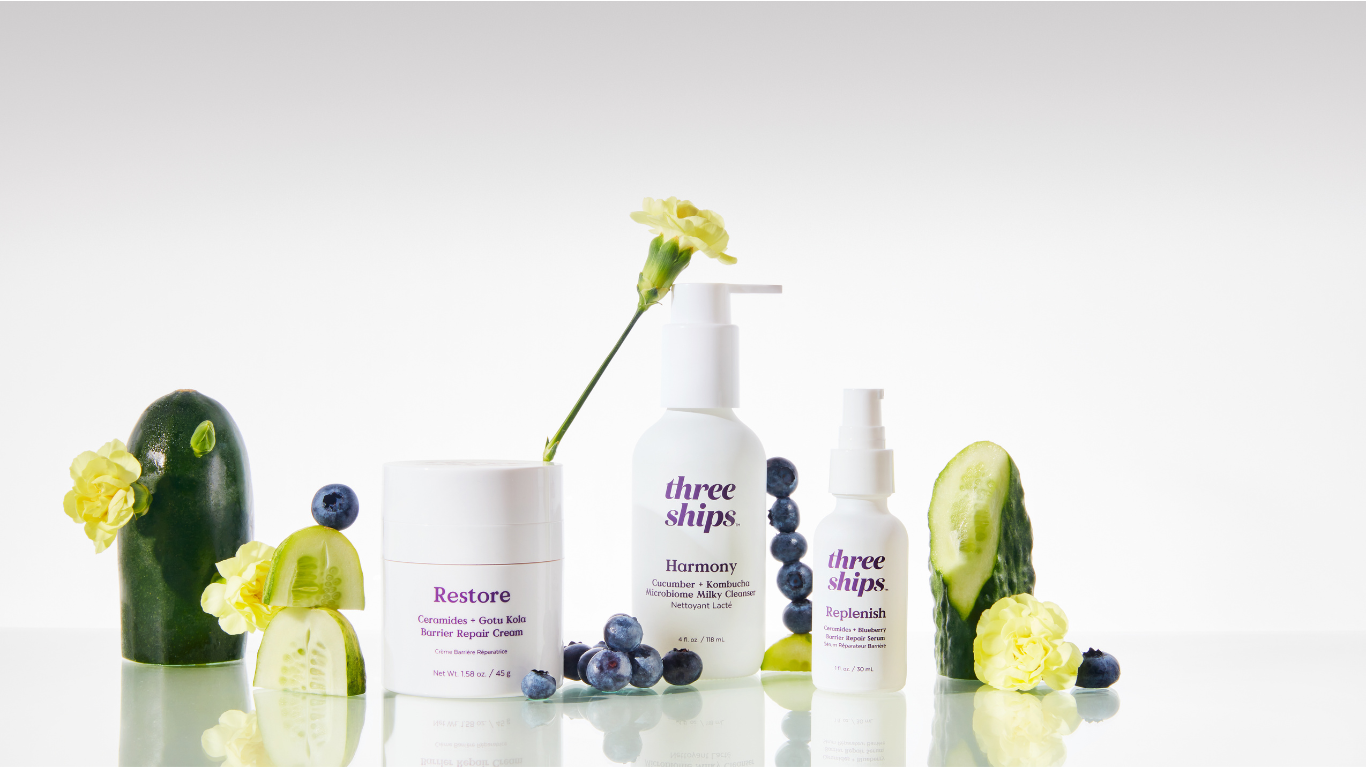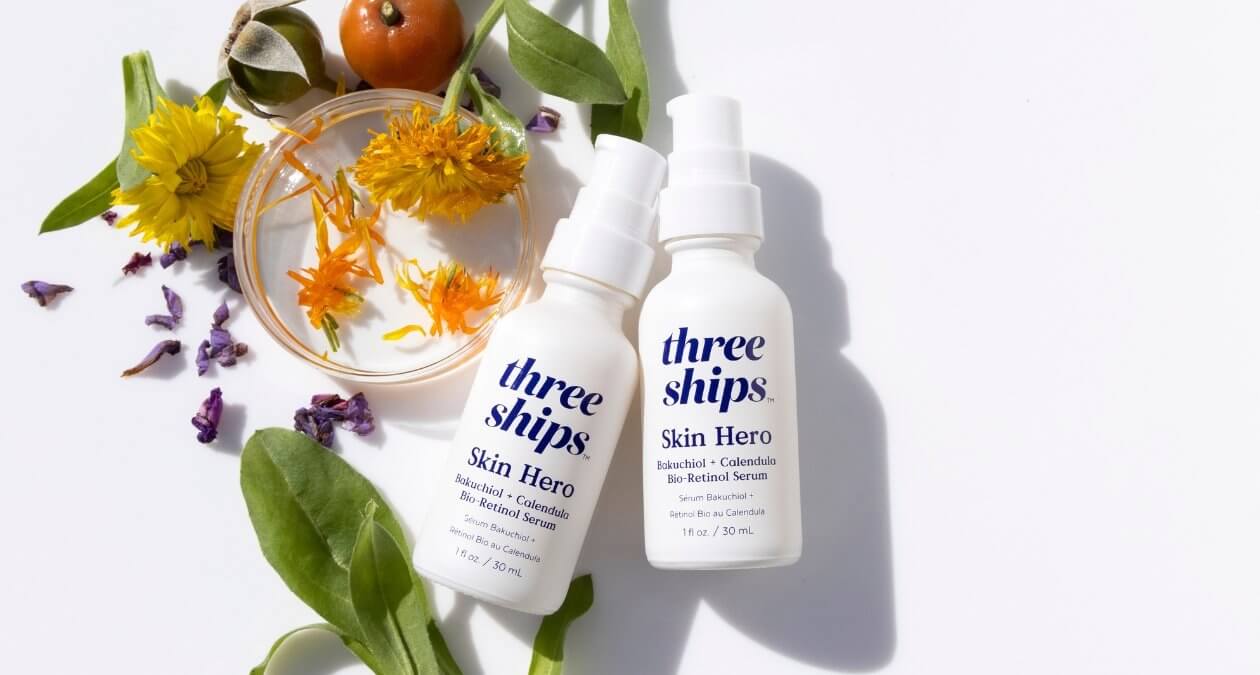What’s the Deal with Preservatives in Skincare?
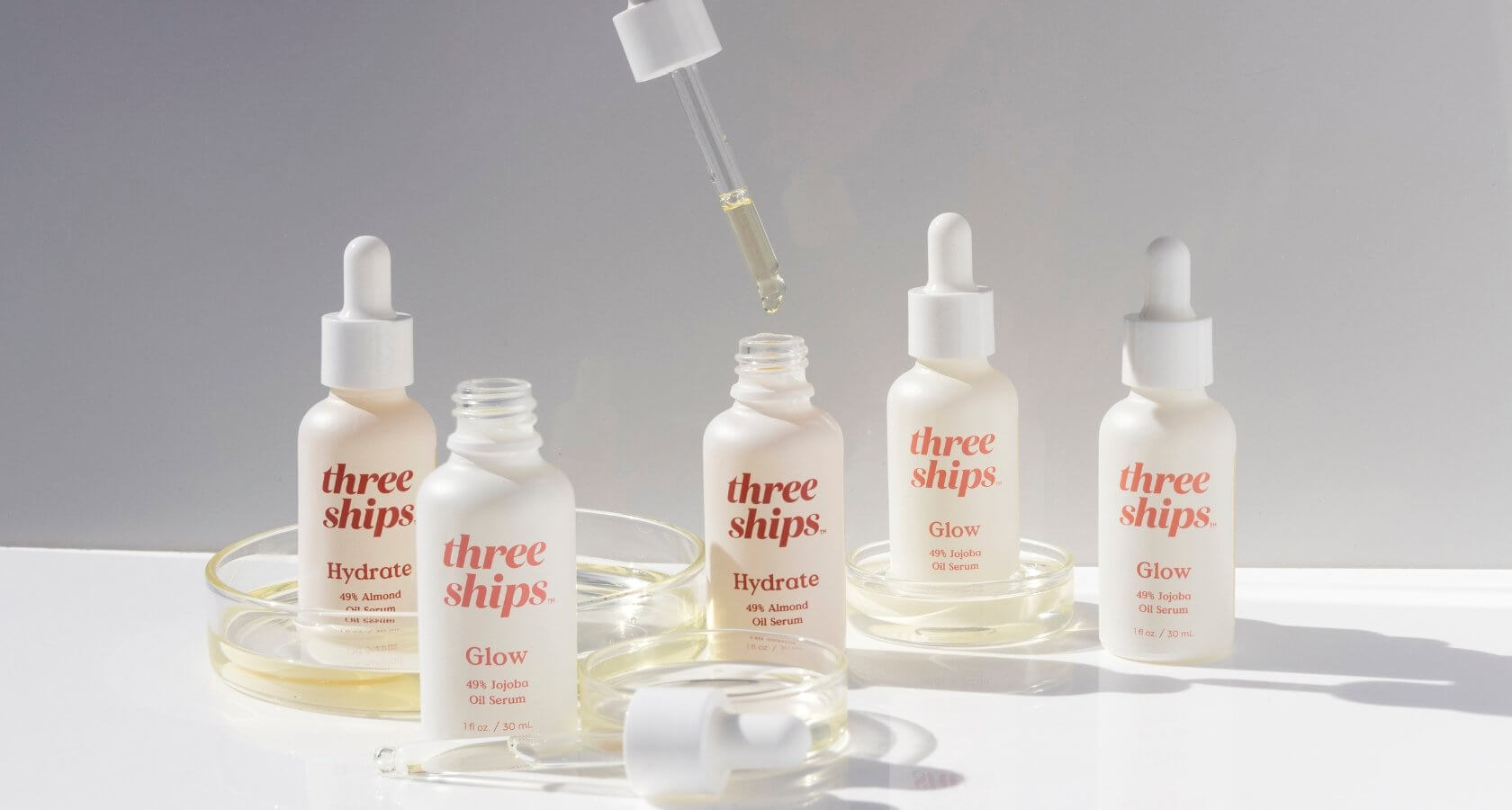
Why do we need to use preservatives?
Like all consumer goods, cosmetics and skin care products are susceptible to natural growth of microbes (e.g. bacteria, fungi, moulds). Microbial growth can reduce the shelf life of cosmetics, reduce their effectiveness, and make them unsafe to use. This is especially true in water-based products because bacteria need water to survive.
Microbes can be introduced into cosmetics during manufacturing, but they undergo testing to ensure there is no contamination before they are sold. Even in the most sterile conditions, after reaching the consumer, microbial growth can occur when germs from our skin, tools, and environment have access to the product. Cosmetics are also often kept in a prime location for microbial growth: a wet and warm environment such as the bathroom!
Preservatives are used to inhibit and kill microbes in our cosmetics so they are safe to use. Three Ships uses only natural and safe preservatives to protect both you and your favourite skincare products. They are often used in combination to achieve the most broad-spectrum antimicrobial activity possible. Many preservatives also have other functions in the product, such as acting as an emollient, humectant, or viscosity-increasing agent.
What preservatives does Three Ships use?
Organic acids such as p-anisic acid (in the form of Sodium Anisate) and Levulinic Acid (in the form of Sodium Levulinate), which we use in Dew Drops Mushroom Hyaluronic Acid + Vitamin C Serum , have broad spectrum microbial inhibition.
Salicylic acid (from our Populus Tremuloides (Aspen) Bark Extract in Purify Aloe + Amino Acid Cleanser and Refresh Papaya + Salicylic Acid Cleanser) is not only great for reducing acne, but it also is effective against bacteria, yeast, and mould.
We also use a naturally-derived Pentylene Glycol from agricultural waste materials, and Propanediol from corn sugar in many of our products. Pentylene Glycol exhibits broad spectrum antimicrobial activity, meaning it can inhibit many types of microorganisms.
Glyceryl Caprylate and Caprylhydroxamic acid are also effective preservative boosters that help to improve the efficacy of other preservatives in the product. Caprylhydroxamic acid is derived from coconut oil that is sourced from Southeast Asia. Similarly, Glyceryl Caprylate is derived from coconut oil and palm kernel oil (RSPO certified, of course!).
Some essential oils (e.g. Lavandula Angustifolia) exhibit antimicrobial properties, but can also be irritating to the skin, so we ensure to use them in very low concentrations.
Other ingredients that help to increase the shelf life of your products include Alpha-tocopherol (aka Vitamin E, derived from soybean oil) which prevent products from going rancid, or Sodium Citrate (maize kernels) and Sodium Phytate (rice bran), which improve the efficacy of other preservatives.
Three Ships has never and will never use synthetic or unsafe preservatives such as Phenoxyethanol, Parabens, or Formaldehyde releasers.
Three Ships also takes preventative steps against microbial contamination by using packaging that does not expose the product to the outside environment, such as in Radiance Grape Stem Cell + Squalane Day Cream and Dream Bio-Retinol + Shorea Butter Night Cream.
If you liked this article, then maybe you’ll like What Natural Means to Us and Our 2,500 Banned Ingredients and The Truth About Filler Ingredients in Your Skincare – It’s Not What You Think.
- Tags: rec1:radiance-grape-stem-cell-squalane-day-cream rec2:dream-bio-retinol-shorea-butter-night-cream-1 Skin Education
0 comments
